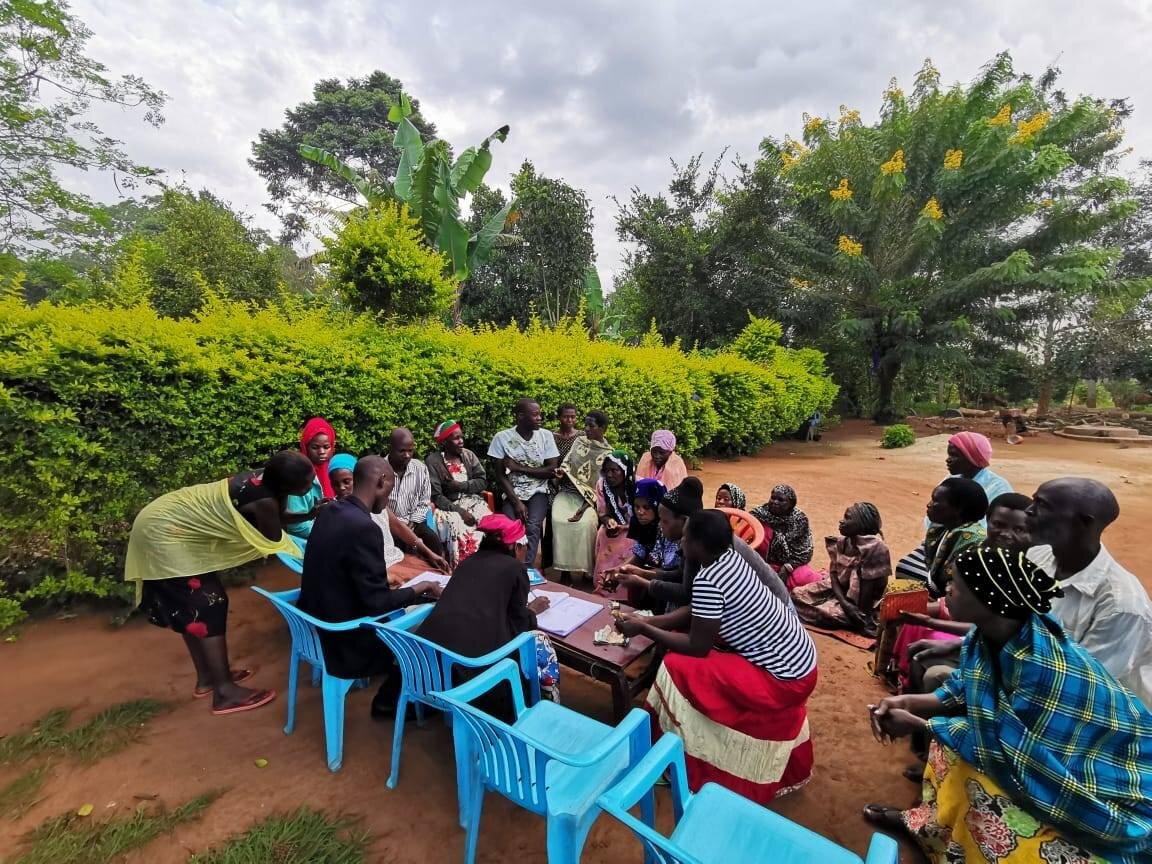The Rwenzori United Group for Life Improvement (RUGLI) recently delivered the results of the Bio-Briquette Project that was funded last year. Funding from Rockflower bought two compression machines and other materials utilized in the bio-briquette production process.
The project had two key objectives: to add value to agro-waste and household by-products that would otherwise be unused resulting in local pollution; and, to utilize the unwanted biomass resources to develop and promote the use of more efficient and cleaner substitutes for fuel, such as wood and charcoal (the major cause of deforestation and environment degradation and indoor pollution health hazards).
RUGLI is located in Uganda, where members are acutely aware of the impact of climate change. Bio-briquettes are a solution that resulted from the community’s realization that they must actively participate in climate mitigation and adaptation measures.
The bio-briquettes are not only improving the local environment, but the women beneficiaries are reaping the benefits of an increased standard of living and profits gained by skills training. The training provides women with the opportunity to learn how to make high quality bio-briquettes out of local materials, for instance organic waste made of coffee grounds, rice husks, banana peels, and charcoal dust. 67% of the community has begun producing briquettes and therefore more households are utilizing them for cooking.
Annet, a 30 year old mother of five living in Kasese, stated “the briquettes are cheaper, dustless and burn longer.” Annet used to spend over UGX 115,500 (about $35 USD) every month on charcoal to cook food for her family, which accounted for 50% of her monthly income. Due to the introduction of “green charcoal,” or bio-briquettes, in her district, she only spends about UGX 59,400 (about $18 USD) on charcoal per month. The bio-briquettes have helped her save time and money that she can put into her own business, selling food crops in the market.
Betty Kasigazi, a member of RUGLI, said “the training and equipment has allowed us to take part in an income generating activity that enables us to provide for our households without destroying our environment.” The training has also helped to change the perception of the role women must play as they have generated household income and environmental protection. The women operating the bio-briquette business are becoming economically empowered as the supply for briquettes is lower than the demand. A kilo of briquettes is sold at UGX 1,320 (about $0.40), which is much less than the price of traditional charcoal. “If {RUGLI] sells all of the briquettes produced in a week, each member receives about UGX 350,000 (about $100). This helps us to pay school fees and buy basic household items like soap, paraffin, salt and sugar,” Betty adds.
This project demonstrates how simple innovations can lead to socio-economic transformation, as well as ownership. It can be used as an example to inform other productive sectors, such as forestry, where women have always played a significant role in sustainable forest and land management through agroforestry to collecting fuelwood and developing non-wood forest products for food, medicine, and shelter.
Women should be given the opportunity to take part in the design and creation of sustainable solutions to climate change and forest conservation challenges as household managers, farmers, and consumers. Bringing women to the decision-making table promotes both gender equality and sustainable development.
The success of RUGLI’s Bio-Briquette Project is an inspiring example of how simple actions can transform societies and how, when empowered, women can break down barriers between men and women.



